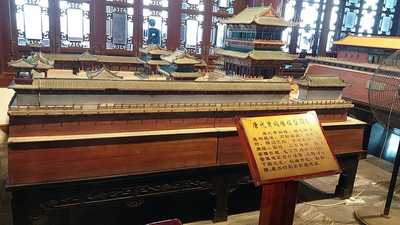anon_juki said in #1776 2y ago:
A few months ago, I encountered one of the most based tweets that I have ever seen. My Japanese is mediocre, so this is largely a machine translation, but I will try to do her writing and the classical poetry justice.
>When I was 19, I went to China on a budget and an old man on the train asked me, "Do you know anything about China? Do they teach about China in Japanese schools?" I quickly wrote "The country is destroyed, but the mountains and rivers remain. Spring is come to the city, the grass and trees are deep... (國破山河在 城春草木深...)" on a paper napkin I had on hand and showed him that I had learned that in middle school. He seemed to be like, "Seriously... this kid is so cultured..." To be honest, I can't say that I tried my best in Japanese when studying for entrance exams, and I only vaguely remember things like sentences I wrote down and marks, but I thought it was interesting to be able to read medieval Chinese poetry from over a thousand years ago (cf. Mr. Landau Taylor's categories), and to be able to converse with old men (ossan in Japanese, a familiar term for a middle-aged man) in modern China using it. I thought this was what education was all about. It's even a good idea to learn this through compulsory education. Now that I'm living overseas, whenever I see someone off or am seen off, I suddenly remember a poem of 李白(Lì Baek, Li Bai). There's a story in a middle school textbook that says, "At the Yellow Crane Tower, 孟浩然(Maéng Hàw-nyen, Meng Haoran) will be sent to 廣陵(Kwàng-ling)."
故人西辭黃鶴樓 (kú nyin sej zi hwang hak luw)
煙花三月下揚州 ('en hwae sam ngjwot háe yang tsyuw)
孤帆遠影碧空盡 ( ku bjom hjwòn 'jaèng pjaek khuwng dzìn)
唯見長江天際流 (ywij kén drjang kaewng then tsjéj liuw)
(translation edited from https://zhuanlan.zhihu.com/p/339364362)
An old friend bids me farewell at the Yellow Crane Tower
In the scenic third month, he heads down to Yangchow.
The lone sail vanishes at the end of a blue sky,
Leaving the surging Yangtze to merge with the horizon.
Some notes: the Yellow Crane Tower is in modern day Wuhan, and the poet's friend is sent on official duty a few hundred km downstream (east) to Yangchow. The poem was probably composed in 730 during the 唐(Dang, Tang) golden age.
>I keep seeing off the ship carrying my friends until it disappears over the horizon.
I may never see you again, and even though I miss you so much, the sky is just blue and the river is flowing slowly, just like always.
>The person who wrote this poem was 1300 years ago.
The people of medieval China 1,000 years ago had many encounters and farewells, and had feelings similar to those of us living in the present day... Through this experience, I was able to understand the fragility and strength of human beings through this. Studying medieval Chinese poetry doesn't mean you'll suddenly make money, but I'm glad I was given that knowledge through compulsory education. I can't say it well, but even if I end up living in different countries, I can still think, "I'm the same person, and I'm sure things will work out." The accumulation of experiences from people in the past has led to the present, and if I'm just a little bit better in society, I think learning Chinese poetry has had a small influence on my ability to have an unfounded sense of positivity that I can contribute to the world.
>By the way, it's a public junior high school in the countryside.
A few months ago, I

